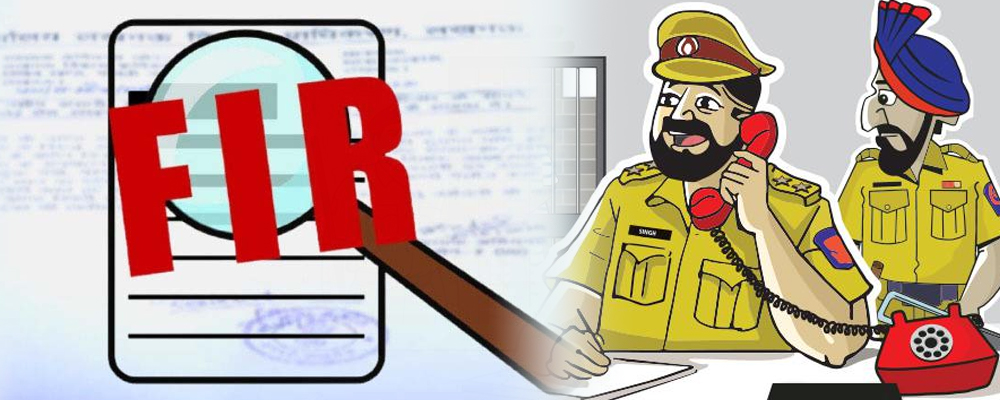First Information Report or FIR is the first step in the criminal proceeding under section 154 of the Code of Criminal Procedure, 1974 (hereinafter crpc). It is a document having complete information about cognizable offenses. For a valid FIR, the identity of the complainant should be disclosed with his signature on it otherwise it will not amount to FIR. FIR gives the right to people to register their complaints. A Police Officer is duty bound to register FIR without verifying or being authentic. Many people take advantage of this and register false complaints. The motive which is generally seen is to defame a person or to take revenge. To deal with such situations, many provisions are there which help to deal with cases of false FIR.
In such cases, after filing of FIR if an arrest has not been made then the person can file for anticipatory bail under section 438 of crpc. It can be filed to Session Court or High Court in non-bailable offenses. Anticipatory bail acts as regular bail in case arrest has been made after granting anticipatory bail. The object of anticipatory bail is that no person shall be humiliated or harassed so as to satisfy any kind of personal vendetta or grudge of the complainant. The Court weighs various considerations while determining whether or not to issue anticipatory bail, and in the event that it does, the Court will also impose the proper terms on the victim.
If in cases of false FIR, an arrest has been made or charge sheet has been filed, then the person can approach the High Court by filing an application for quashing of false FIR under section 482 of crpc or for filing of the writ of prohibition or the writ of mandamus under section 226 or 32 of Indian Constitution. Supreme Court in State of Haryana v. Bhajan Lal 1992 SCC (Crl.) 426, held that where allegations made in an FIR or complaint were so absurd and inherently improbable on the basis of which no prudent this was sufficient justification to throw out the FIR since no reasonable person could ever come to a just decision.
The Apex Court further said that the FIR can be thrown out where a criminal procedure is clearly motivated by malice, and when it is deliberately started with the intent to exact revenge on the accused and to spite him as a result of a personal grudge. In T.T. Anthony v. State of Kerala, it was decided that the High Court might quash a FIR according to section 482 of the CRC. It is a function of the High Court’s inherent power. If the police has filed the charge sheet on the basis of the false FIR and the Sessions judge has been committed with the case and before the trial commences, the victim, under Section 227 of the CrPC can file a ‘Discharge Application’ so as to get discharged from the offense the victim has been charged with was based on the erroneous FIR that was filed against him. If a discharge application has been rejected and trial has commenced then Application for Acquittal of the accused can be made under Section 232 of the CrPC.
Need A Legal Advice
The internet is not a lawyer and neither are you. Talk to a real lawyer about your legal issue

In case of false FIR, the police can also file closure reports under section 173 of crpc. If the police officer after an investigation found that no offense has been committed, then they filed a closure report. The person who files a frivolous or a false FIR against another can be held guilty under Section 211 of the Indian Penal Code, 1860 (hereinafter IPC), but this situation can only occur if the frivolous FIR was dismissed by both the victim’s application to the High Court and the court, or if the victim was exonerated or released by the High Court. If a public servant framed an incorrect document with the intention to cause injury can be held liable under section 167 of IPC. Such public servants shall be punished with imprisonment which may extend to 3 years, or with a fine, or with both.
In most of the cases, false cases are filed to torture, humiliate the other person with the intention of taking revenge. In such cases, civil suits can be filed by the victim under Section 19 of the Code of Civil Procedure, 1908 in order to get compensation for his/her defamation caused as a result of the complainant’s fraudulent claim. A criminal defamation case against such a person can also be filed by the victim Section 499 r/w Section 500 IPC where the punishment would be imprisoned up to 2 years, or with a fine, or both. Section 220 of IPC punishes a person with 7 years or fine or both who wrongfully commits any person for trial or wrongfully confines such person, by misusing his legal authority.
False FIR is misuse of law to implicate a person into litigation. It affects the person mentally, financially and emotionally. FIR has a stigma attached to it. The cases of false FIR should be curbed by taking strict actions.





 Talk to a Lawyer
Talk to a Lawyer